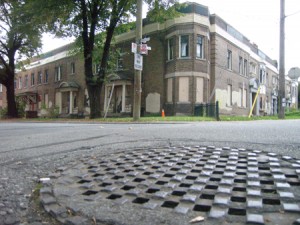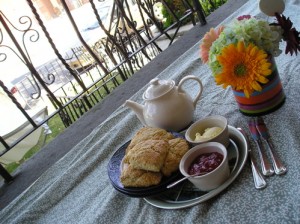February 15, 2011
More on the motherhood narrative
![]() Lately, reading Susan Olding’s book Pathologies (and in particular, her essays about infertility and her daughter’s adoption) and Charlene Diehl’s Out of Grief, Singing (as recommended by Alison Pick), I was struck by how various is the motherhood narrative. And yet the universality of these stories– these women, with their extraordinary experiences of motherhood, managed to articulate so much that I’ve only been gesturing toward since I became pregnant two and a half years ago. Partly because the writing here is so remarkable. This might also be because I’m self-absorbed, and project myself onto everything. But still, how these stories resonated, and also taught me new things about the motherhood experience, added the possibility of additional dimensions to my journey.
Lately, reading Susan Olding’s book Pathologies (and in particular, her essays about infertility and her daughter’s adoption) and Charlene Diehl’s Out of Grief, Singing (as recommended by Alison Pick), I was struck by how various is the motherhood narrative. And yet the universality of these stories– these women, with their extraordinary experiences of motherhood, managed to articulate so much that I’ve only been gesturing toward since I became pregnant two and a half years ago. Partly because the writing here is so remarkable. This might also be because I’m self-absorbed, and project myself onto everything. But still, how these stories resonated, and also taught me new things about the motherhood experience, added the possibility of additional dimensions to my journey.
I also can’t help thinking about how I would critique Diehl’s memoir if it were a novel– during most of her daughter’s brief life in the NICU, Diehl was suffering from a variety of post-birth complications and hardly saw her before she died. In a stupid workshop, I would insist on moments of connections, on the impossibility of these parallel storylines (mother and baby both in physical trauma), it doesn’t unfold like a story (but then, from what I’ve heard, death rarely does). We have to bend life a certain way to make it work in fiction, but real life doesn’t bend, does it. And how Diehl makes something so beautiful of it still, the unbendingness of real life. There is such generosity in her story, such grace, and though I’ve sobbed off and on today as I’ve read her book, so often I’ve been crying because of the joy.
February 14, 2011
Renter's Blues
 No, just kidding. There are no blues, as I’m a renter by choice, and we made that choice because buying a house would mean I’d have to get a full-time job while (however conversely) we’d then be broke, and also living somewhere that wasn’t here. But I have renting on my mind today after reading Beautiful Anomaly, Lauren Kirshner’s amazing essay in Taddle Creek about the Sylvan Apartments, which became more and more boarded up every time I walked by them on my way to the grocery store in 2005/6, back when we lived at College and Ossington. I’d always wondered what their story was, and what a spectacular way to discover it.
No, just kidding. There are no blues, as I’m a renter by choice, and we made that choice because buying a house would mean I’d have to get a full-time job while (however conversely) we’d then be broke, and also living somewhere that wasn’t here. But I have renting on my mind today after reading Beautiful Anomaly, Lauren Kirshner’s amazing essay in Taddle Creek about the Sylvan Apartments, which became more and more boarded up every time I walked by them on my way to the grocery store in 2005/6, back when we lived at College and Ossington. I’d always wondered what their story was, and what a spectacular way to discover it.
From Kirshner’s piece: “In the end, the Sylvan is less a ghost story than a relic from an era when renting didn’t have to be a compromise [emphasis is mine]. The building gave working people amenities usually associated with home ownership. It was a place where people lived well even if they weren’t well off—an idyll that likely will never again be possible for the average renter in downtown Toronto.”
Which is something to think about. And it got me thinking also about what was perhaps my favourite part of Phyllis Brett Young’s The Torontonians: “In Toronto, the word home was still spelled h-o-u-s-e, and anyone who lived in an apartment by choice, and more particularly an apartment downtown, was considered eccentric if not unstable. On Park Avenue in New York, you were told, it was all right to live in an apartment. But in Toronto it was different. In Toronto, if you were stable, you lived in a house. Your Dun and Bradstreet rating was helped considerably if you owned a house, even if, as was usually the case, the mortgage company could put forward a much better claim to stability in this context that you could.”
February 10, 2011
My postal phantom receives a letter from the Undeliverable Mail Office
 Kyo Maclear’s 2007 novel The Letter Opener is about a woman who works at Canada Post’s Undeliverable Mail Office in Scarborough, and as I am a postal enthusiast, I devoured the book with delight. I also really enjoyed Maclear’s essay in the back of the book about “Postal Phantoms”– those people who inhabited your home before you and whose mail you continue to receive for years and years. How you come to understand these people’s characters through the return addresses, and they become so familiar that it would almost be disappointing if you one day encountered your postal phantom in the flesh. (I wrote about my own postal phantoms in this post, back in 2008.)
Kyo Maclear’s 2007 novel The Letter Opener is about a woman who works at Canada Post’s Undeliverable Mail Office in Scarborough, and as I am a postal enthusiast, I devoured the book with delight. I also really enjoyed Maclear’s essay in the back of the book about “Postal Phantoms”– those people who inhabited your home before you and whose mail you continue to receive for years and years. How you come to understand these people’s characters through the return addresses, and they become so familiar that it would almost be disappointing if you one day encountered your postal phantom in the flesh. (I wrote about my own postal phantoms in this post, back in 2008.)
So worlds collided today when my current postal phantom received a letter from the Undeliverable Mail Office! (This phantom is not mentioned in my other post, because I’ve moved since that post was written and left Amanda Lee Hickman behind. In fact, no doubt Amanda Lee and I are now postal phantom-ing it together back at my former address.) I wanted to call up Kyo Maclear and tell her all about it, because it’s really quite remarkable– this means that my postal phantom is out there in the postal phantom netherworld sending mail to undeliverable addresses. What a menace this guy is!
The root of most of his problems, I think, is that his old/my address is still on his cheques, which was how the Undeliverable Mail Office tracked him down (misleadingly) to my house. The whole thing makes me feel quite sorry for that postal employee (and in my head it was Maclear’s Naiko) who took care to open his envelope, redirect his letter, and even include a standard notice about why she had to open his mail that ends with a happy face and the message, “We care”. She must have felt so satisfied, tracing this piece of mail (with no return address, mind you. My postal phantom is so careless!) back to its owner, and I hope she never realizes that she’s only sent it further amiss.
And yes, I do open my postal phantom’s mail. We have been in this relationship long enough that I feel like his letters are really for me. Now I may have to track down the actual person behind the phantom, because it would only be responsible. But then I’d also have to explain why I’ve been opening his mail, which might get a little bit awkward.
*I recently read Maclear’s picture book Spork. It’s awesome.
February 10, 2011
She still fits into that damn doll stroller
“There was a little kid, maybe three of four, walking down Main Street by herself with a doll’s stroller strapped to her butt. Every few steps she’d stop and sit down in it for a rest and then get back up and keep walking.
From the back all I could see was the stroller and two little legs. I wondered what she was thinking. I wonder what three-year-olds think. I wonder if somebody had told her she was too big for that stroller. I wonder if she felt the way I did about people who told you something that you knew was just not fuckin’ true and if she felt like screaming at them and hurting them and plunging herself into a chemically induced oblivion.
I admired this kid for keeping her cool. She just strapped herself into that doll stroller and took of walking, probably without a word. All the way down Main Street. She’ll show the whole town that no, in fact, she still fits into that damn doll stroller.”
–from Miriam Toews’ A Complicated Kindness, which I’m reading for the first time. I quote this because last night it made me laugh until I cried.
January 9, 2011
"For never in our lives has anything so extraordinary happened…"
My friend Julia sent me a copy of Joyce Carol Oates’ essay “A Widow’s Story”, because the prose was “stunning”, and she admired Oates’ transition between past and present, and how “though the present is horrid (he’s dying), [Oates] knows, in retrospect, that it’s so much better than the future.”
I am so glad Julia sent it, because it’s a wonderful, devastating essay, but also, though it’s perverse to admit, because I have a thing for examinations of widowhood– also The Year of Magical Thinking, and Calvin Trillin’s About Alice (which was also a New Yorker essay before it was a book). Mostly because these are also fascinating examinations of long and enduring marriages, but, yes, because I can’t help it too– worst nightmares vicariously are the safest kind, a bit like staring at a car wreck, and also because I have this ridiculous notion that if just I read enough books, I could come to the moment prepared.
This final point bringing me to motherhood, which is where a similar plan has already failed me– I read enough books, but I read them all wrong. But, nevertheless, upon reading Oates’ essay, I had an ephiphany about the way that we talk about motherhood, or rather about how often we end up talking about motherhood. That these conversations about motherhood and widowhood are so often similar in approach and in tone. This I realized in particular when I read a line from just after her husband has died, ab0ut her amazement at the impossibility of such a thing occuring: “For never in our lives has anything so extraordinary happened between us…”.
For so many of us who are so fortunate, life doesn’t tend to happen to us. We live in a blissful, lucky, unaware state– what Oates’ describes as “the vanity of believing that somehow we [own] our lives.” Perhaps the most startling upset of new motherhood is the sudden awareness that we don’t, exactly. That another life owns ours and all at once, the world no longer bends to our wishes. That whole cliche about hearts outside our bodies as well, and though none of this has the same permanant rent as widowhood, there are parallels. The adjustment seems impossible.
Similarly, we are otherwise so insulated from the stuff of life, from birth and from death, which usually are enacted in the same place and restricted from public view, that these perfectly ordinary events do become extraordinary. Foreign, unimaginable, except for remnants we’ve gathered from movies and TV and the gulf between these scenes and reality makes the experience all the more difficult to actually process. The disconnect results in the fixation, the never-ending conversation– we’re putting the pieces together over and over again, hoping for something we’ll eventually recognize.
January 6, 2011
A Poem: Tea words as appropriated from Oxford Canadian Dictionary
 tea. tea bag. tea ball. teaberry. tea biscuit. tea bread. tea break. tea caddy. teacake. tea ceremony. tea chest. tea cozy. teacup. tea dance. tea garden. tea house. tea lady. tea leaf. tea party. tea plant. teapot. teapoy. tea room. tea rose. tea service. tea shop. teaspoon. tea strainer. tea table. tea time. tea towel. tea tray. tea tree. tea trolley.
tea. tea bag. tea ball. teaberry. tea biscuit. tea bread. tea break. tea caddy. teacake. tea ceremony. tea chest. tea cozy. teacup. tea dance. tea garden. tea house. tea lady. tea leaf. tea party. tea plant. teapot. teapoy. tea room. tea rose. tea service. tea shop. teaspoon. tea strainer. tea table. tea time. tea towel. tea tray. tea tree. tea trolley.
January 4, 2011
Miscommunicado
Recently, I was speaking to someone who felt it necessary to commend me for having interests beyond my child, which sort of galled me, because I wondered what business was it of his where any of my interests lie. It continues to be very important for me to engage with the world in various ways, but what if it wasn’t? It is easy to make being a parent an all-consuming business, but I can think of worse things to be consumed by.
And then I was recounting this to a friend of mine who gave me her definition of an all-consumed parent, which is that friend who has a baby and never calls you again. Another, I suppose, would be the parent who is unable to talk about anything except their children (which would be fair enough if they ever asked questions about your own life, but they never do). The problem with these people, I would think, is not that these parents are all-consumed, but that they’re crappy friends, and totally rude. (Or maybe, maybe, they’re totally overwhelmed by new parenthood and require your support? Though this excuse should definitely come with an end-date).
Anyway, from all this discussion, it occurred to me how rarely any of us are ever talking about the same thing. How careful we should be in giving opinions, in taking things personally, and how important it is to be articulate. That perhaps so much of what divides us (and I am thinking of women in particular, for there is no group more division-prone, except perhaps the Protestant church) is quite illusory, and how easily we might be able to clear things up with a bit of conversation.
January 2, 2011
East Side Public Library
From the “Detroit in Ruins” gallery at The Guardian. Accompanying story is here. It amazes me that the books were just left behind, like jetsam, as though no possible further use could be imagined for them.
December 21, 2010
Illustrated literary allusions
 Seriously, my head went on vacation three days ago, so please indulge me a little here. Lately, I’ve been obsessed with identifying illustrated literary allusions in picture books. The Ahlberg‘s are all over this, the baby in Baby’s Catalogue actually reading his own copy of Baby’s Catalogue. Elsewhere in the book, Baby’s Daddy is reading old school baby expert Hugh Jolly’s Book of Child Care. In another Ahlberg book, the sweet but kind-of-disturbing Bye Bye Baby, the old Uncle is reading an orange Penguin paperback, but no amount of examination has managed to decipher which one.
Seriously, my head went on vacation three days ago, so please indulge me a little here. Lately, I’ve been obsessed with identifying illustrated literary allusions in picture books. The Ahlberg‘s are all over this, the baby in Baby’s Catalogue actually reading his own copy of Baby’s Catalogue. Elsewhere in the book, Baby’s Daddy is reading old school baby expert Hugh Jolly’s Book of Child Care. In another Ahlberg book, the sweet but kind-of-disturbing Bye Bye Baby, the old Uncle is reading an orange Penguin paperback, but no amount of examination has managed to decipher which one.
Harriet and I both delight in Jorge Uzon’s Go Baby Go when the baby in the book “reads” Teddy Jam’s Night Cars. We also have a book called Book by Kristine O’Connell George, whose illustrations by Maggie Smith show the child clearly reading Richard Scarry’s The Bunny Book. Except that Scarry is uncredited– I wonder if it’s more tribute than plagiarism? Though wouldn’t a more fitting tribute be to have his name on it, hmm?
Updated: We just read Marjorie Flick’s Ping, followed by Sarah Garland’s Going to Playschool in which the children are being read aloud from a book that is quite clearly Marjorie Flack’s Ping. Amazing! What are the odds of these two books coming home from the library with us together?
December 14, 2010
Literary Intersections
I haven’t read Anne Michael’s Fugitive Pieces in years and years, but I am still buzzing from Amy Lavender Harris’ Imagining Toronto. Having read that book recently means that I was familiar with the passage from Fugitive Pieces displayed on the Project Bookmark plaque on the Northwest corner of College and Manning Streets, which Harris also excerpts in her book to give a sense of that neighbourhood’s international quality. Context upon context. Books make neighbourhood roaming a most satisfying pursuit on this cold and snowy day.






